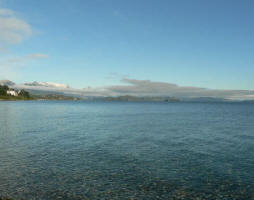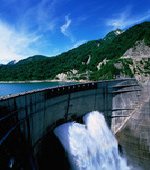| Language Requirements |
English [Essential]; French [Desired]; Portuguese [Desired]; Spanish [Desired]
The mission of the Sustainable Development Department (LCSSD) in the Latin America and Caribbean Region (LCR) is to help the Bank's clients grow in an environmentally and socially sustainable manner that reduces poverty. LCSSD is responsible for: (i) advising LCR Management on long-term development issues in the sectors of LCSSD expertise, and delivering a broad range of high-quality operational and analytical products, primarily in response to demand from Country Management Units (CMUs); (ii) professional development of the LCR staff assigned to the Sustainable Development (SD) Network, including those based in field offices; and (iii) ensuring a proper link with the Sustainable Development Network (SDN) in developing a long-term vision and strategy for SD activities Bank wide and in LCR.
The Latin America and Caribbean Region’s Urban, Water and Disaster Risk Management Unit (LCSUW) within LCSSD operates in the context of the overall Regional mission to improve the quality of people's lives. With over 75 percent of the population living in urban areas, LCR is the most urbanized region of the developing world. Moreover, some 60 percent of the Region's poor live in cities and towns that range from remote Andean and Amazonian municipalities to the sprawling mega-cities of Mexico City and Sao Paulo, two of the world's largest cities. It is estimated that about one third of these urban residents live in slums where they suffer from limited access to basic services such as water supply and sanitation, transportation networks, substandard housing, insecure land tenure arrangements, environmental degradation, and severe social problems, including unemployment, and crime and violence. Urban areas are also the drivers of growth and innovation in the Region and consequently represent both an opportunity and a challenge for sustainable urbanization, achieving the vision of green cities, and poverty reduction. Therefore, it is fair to say that sustainable development in the Region is critically dependent on sustainable urbanization.
Being a region that started its urbanization process much earlier than other developing regions, the experiences and lessons learned from the urbanization process of LCR are considered valuable to other regions that are undergoing a rapid urbanization process. Therefore, drawing lessons learned, sharing experiences and promoting south-south collaboration with other regions is an important agenda for LCSUW.
Against this backdrop, over the years, LCSUW has developed three integrated lines of business: water supply and sanitation (including integrated urban water management, urban water supply and sanitation, waste water management, drainage, capacity building of utilities, rural and peri-urban water supply and sanitation) urban development (including infrastructure and urban environment, solid waste management, housing financing and land development, local economic development and tourism, metropolitan governance and management, slump upgrading and crime & violence prevention); and disaster risk management (including disaster vulnerability reduction/prevention, risk financing such as CAT-DDO and risk insurance, and emergency response/reconstruction post disasters. LCSUW provides our clients services through lending (including SIL and DPL), implementation support (supervision), and advisory, knowledge, and technical assistance. LCSUW works collaboratively with other sector units within the Sustainable Development Department, in addition to working across the Bank networks and with other institutions of the Bank group.
At present, LCSUW has 65 ongoing projects in its portfolio, with a loan/credit value of over US$5.4 billion. The annual new commitment averaged about US$1 billion over the last three years, and the Unit is working on a diverse pipeline with strong innovation and client responsiveness. In FY2011, the Unit delivered 16 new operations worth over US$1.5 billion, and completed 11 pieces of ESW/AAA work. The Unit budget, excluding reimbursable and trust fund sources, is about US$12 million. LCSUW comprises about 55 team members, including ETCs, ETTs, and JPAs.
Due to the recent decisions to reduce the span of control for sector managers Bankwide, LCSUW will be divided into two units, each with a sector manager: (a) Water Supply and Sanitation Unit, and (b) Urban and Disaster Risk Management Unit. The two units are expected to be in place at the beginning of next fiscal year, July 2012. This position will be in the Water Supply and Sanitation Unit.
To support the growing demand from our clients for water services improvement, in particular waste water management, drainage, and flood protection, we are seeking a highly qualified and motivated Senior Water Supply and Sanitation Specialist to lead tasks (projects and analytical work - AAA), support policy dialogue, conceptualize and promote better ways to develop and manage water and waste water services, drainage and flood protection in client countries in an economically efficient, environmentally sustainable, and equitable manner. The suitable candidate will play a key role in advancing the green growth and water services agenda in LCR, including institutional reforms as well as forging stronger linkages with environmental, water resource, and urban management efforts.
The successful candidate will provide strategic and operational support to the Unit’s program on water services especially in waste water management, as well as in drainage and flood protection. The Sr. WSS Specialist will:
• Lead and/or participate in task teams to deliver investment and development policy lending operations, prepare analytical and advisory activities, and develop new business opportunities in the WSS with a focus on waste water management, drainage and flood protection in the Region in a manner that ensures strong linkages with environmental, water resource, and urban management efforts.• Lead, and or contribute to policy dialogue, institutional development, reforms, and just-in-time advisory work in effective provision of water services with a focus on waste water management, drainage and flood protection including, development of policies, investment programs and sustainable management in urban areas including slums, medium/small towns, and help enhance the capacity of utilities, national and sub-national clients and service providers; • Assist country teams in the inclusion of water services agenda in Country Assistance Strategies and Country Partnership Strategies, lead and/or provide critical input in the design and execution of policy and research initiatives; and conceive, and promote innovations in Bank policies and sector strategies in water services development;• Contribute to the formulation of sustainable water services development vision and strategy in towns, cities and other major metropolitan areas in the region, support mainstreaming climate change in WSS projects and programs, and contribute to strengthening capacity for planning and implementing local economic development programs;• Where relevant, support public-private partnership arrangements which could strengthen efficiency of utilities and increase access to services including in slum areas• Participate in professional development and knowledge sharing activities in the WSS sector and contribute specific knowledge both within the countries in which the Unit has programs and in the World Bank more broadly;• Working with the Water Anchor, help develop knowledge products and training activities to improve best practice in and outside the World Bank especially in waste water management, flood protection and drainage; • Provide coaching and mentoring on-the-job to junior team members, extended term consultants and junior professional associates in the Unit.
CompetenciesShown below are the competencies linked to this job broadly; however, this particular position emphasizes the sanitation, water supply, and waste water, drainage and flood protection elements. In particular, the candidate will have the following skill sets:
Knowledge and Experience in Development Arena - Translates technical and cross-country knowledge into practical applications and contributions to country and sector strategies; interacts with clients at the policy level.
Policy Dialogue Skills - Anticipates needs and requests in the field and conducts independent policy discussions with representatives of the government and non-government partners.
Integrative Skills - Understands relevant cross-sectoral areas how they are interrelated; able to undertake cross-sectoral work in lending and non-lending operations.
Extensive knowledge and experience in:
Water Policy and Strategies: Understands policy instruments affecting water supply, sanitation, and water resources management, drainage and flood protection, including for low income populations. Understands governance and reform agenda for both public and private components. Understands cross-sectoral linkages with public health, environment, economic growth and poverty reduction.
Water Institutions: Knowledge of water supply, sanitation, water resources management. Understands different models and roles for public and private sector and government agencies, and how they engage with communities and civil society
Water Law and Regulations: Understands the body of water law and regulations, including: water use rights; environmental issues and implications; water quality standards; customer service contracts and other commercial issues related to provision of water and wastewater services; PPP contractual structures and issues; contract theory and analysis of incentives
Water Supply and Sanitation Infrastructure and Technologies: Has direct experience with water supply and sanitation infrastructure and technologies, including deeper experience in water and wastewater treatment, water supply distribution networks, separate and sanitary sewers, low-cost water supply and sanitation technologies, stormwater drainage infrastructure
Client Orientation: Understands client needs, issues and concerns and demonstrates a desire to address them. Engages the client by considering the client’s culture, work styles and perspectives
Drive for Results: Delivers results and impact for clients and stakeholders. Holds self accountable for achieving sustainable results, and makes things happen both as an individual and through others.
Teamwork (Collaboration) and Inclusion: Collaborates and promotes inclusion within and across boundaries. Works effectively with individuals of different cultures and gender, and includes the perspectives and ideas of others.
Knowledge, Learning and Communication: Demonstrates agility for learning and a commitment to enhance one’s capacity. Routinely shares own knowledge with others. Listens objectively to others’ ideas, and speaks and writes clearly, concisely and persuasively.
Business Judgment and Analytical Decision Making: Applies analytical and critical thinking to understand the business and to make evidence based interventions that impact results. Challenges conventional approaches and fosters appropriate risk-taking.
Other Selection Criteria
• Advanced degree(s) in engineering
• A sustained record of achieving high quality, substantive results in the water and sanitation sector in particular in waste water management over an extended period (typically 8 years or 5 years and a PhD).
• demonstrated operational experience in designing and implementing investment programs, ideally within the World Bank context or with other international development organizations
• Strong written and oral communication skills, with demonstrated ability of making effective presentations to diverse audiences.
• Language skills: English [Essential]; French [Desired]; Portuguese [Desired]; Spanish [Desired]
The World Bank Group is committed to achieving diversity in terms of gender, nationality, culture and educational background. Individuals with disabilities are equally encouraged to apply. All applications will be treated in the strictest confidence.
|
 Sr Water & Sanitation Spec. (Waste Water Mgmt)
Sr Water & Sanitation Spec. (Waste Water Mgmt)
 you are not logged in
you are not logged in





